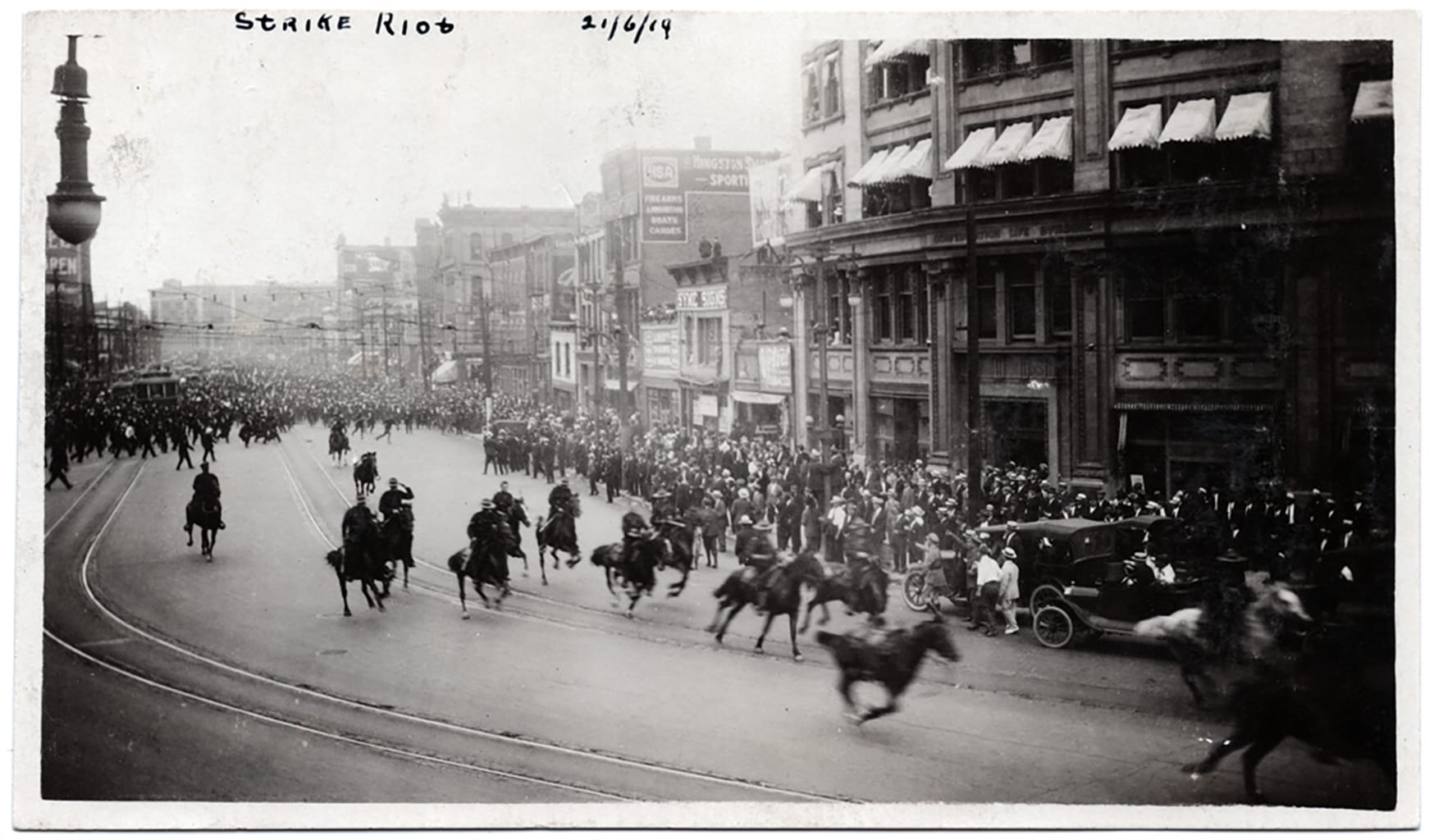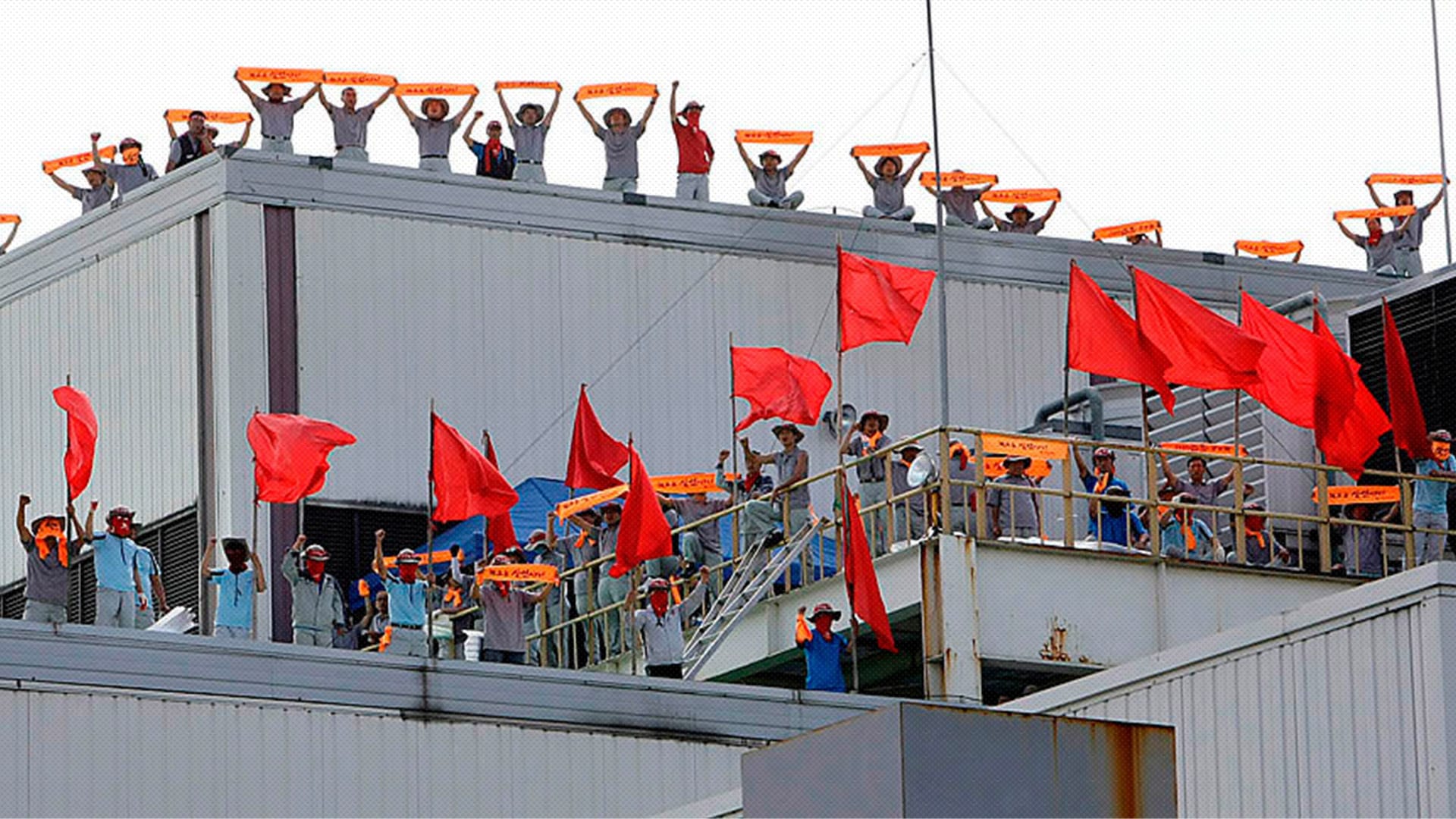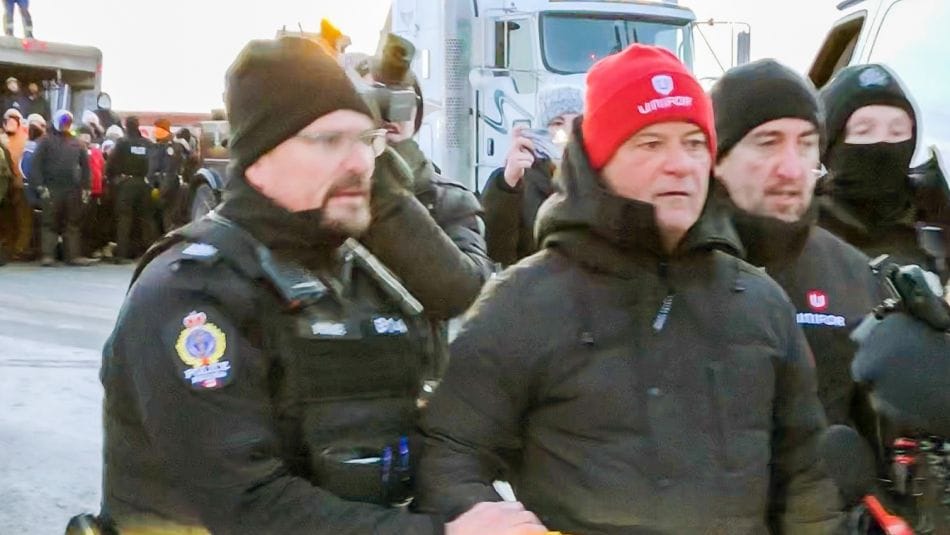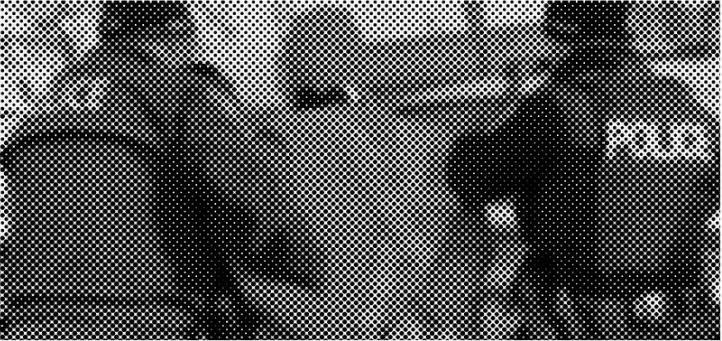Below is the text of the leaflet that we will be distributing at the May Day rally and march that starts on Wednesday, May 1, at 5:30 pm at City Hall. WPCH will be meeting up ahead of the rally at 5 pm by the Cube in Old Market Square if you'd like to come march with us!
Within the labour movement we know that being a worker is more than doing a job and receiving a paycheck. Being a worker means coming together to build collective power to address the imbalance that exists between individual workers and the bosses.
Managers are excluded from unions because they get to make decisions about the livelihoods and well beings of workers and profit from their labour.
When workers come together to demand what they need to survive, the police are there as well; not to stand on the picket lines, but to serve injunctions, hand out fines, and arrest striking workers.
The police serve a system that is increasingly willing to ignore hard-won labour rights and engage in legalized abuse and violence to force people back to work.
Police are not workers because if they actually stood with the working class, they’d realize that an injury to one is an injury to all, and that standing together against those that would steal what we have created through our labour is the only way to create a better future for everyone!
The RCMP, the origin of policing in Canada, was created to further Canada’s colonial agenda by capturing formerly enslaved people, forcibly displacing Indigenous people from their land, and removing Indigenous children from their families to send them to residential “schools.”
Police already wield significant social power, and the legal power to kill. With the added political and bargaining power of unions, police have won contracts thick with protections, and lax disciplinary standards.
Police “unions” shield officers from accountability in the aftermath of misconduct, or even blatant abuse or violence, and bargain for the impunity of officers in the face of the law.
Abuses Against Workers
These are just a handful of times the police and governments have interfered with workers right to strike. There are numerous other examples.
1919: Winnipeg, Manitoba - Winnipeg’s building and metal workers went on strike. 30,000 workers joined in solidarity. Police who were sympathetic to the strikers were fired and 1,800 special constables were hired and paid for by the business community to stop striking workers from congregating and to arrest strike leaders. Police killed two strikers and wounded 34 others.

1925: Cape Breton, Nova Scotia - William Davis was killed by police during a strike by coal miners against the British Empire Steel Corporation.
1996: Winnipeg, Manitoba - Police pepper sprayed striking workers at Boeing, including some already in a police van and cancelled a 911 call made by strikers for medical assistance.
2009: South Korea - Following a fraudulent bankruptcy filing and mass layoffs, workers at the Ssangyong Motors factory declared a full strike and occupied the factory. They were attacked by police and company-hired guards. More than 30 workers and family members died as a result of the strike.

2018: Halifax and Ottawa - Six people in Halifax and three more in Ottawa were arrested on separate occasions after the government passed back-to-work legislation to break the Canada Post strike. Similar legislation was found to be unconstitutional under the Harper government, but has been used several times in the recent past to compel striking public employees back to work.
2020: St. John’s, Newfoundland – Striking Dominion workers were threatened with arrest by the Royal Newfoundland Constabulary while conducting a peaceful picket at the Weston's Bakery in Mount Pearl, NF.
2020: Regina, Sask - UNIFOR President Jerry Dias was arrested during a picket of the Co-Op Refinery.

2024: Ottawa, Ontario - Police arrested labour leader Alex Silas during a press conference and rally in support of striking workers in an attempt to intimidate the workers.
2024: A report from the Parkland Institute found that government legal intervention in public service strikes has tripled over the last 20 years. These legal restrictions on labour rights and attacks on labour power are enforced by the police through fines and arrests.
